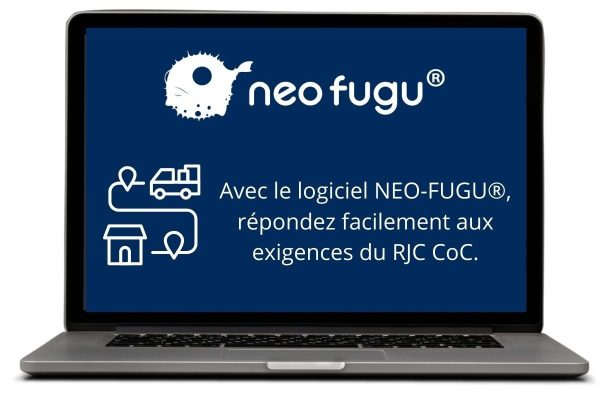The RJC (Responsible Jewellery Council) offers two main types of certification: the Code of Practices (CoP) and the Chain of Custody (CoC). In this blog, we’ll explain the main differences between the two ! We will then present the tools you need to meet the requirements of these certifications.
1. Certification Code of Practices (CoP)
- The RJC CoP focuses on the commercial and operational practices of companies in the jewelry sector.
- This certification aims to ensure that companies adhere to high standards of social, environmental and ethical responsibility in their day-to-day activities.
- CoP-certified companies must comply with a set of standards and criteria established by the RJC, covering areas such as human rights, health and safety, environmental management, business ethics, etc…
2. Certification Chain of Custody (CoC)
- The RJC CoC focuses on the traceability of materials throughout the supply chain, from extraction to the final product.
- This certification guarantees that the materials used in jewelry production come from socially, environmentally and ethically responsible sources.
- CoC-certified companies must rigorously track and document material flows throughout the supply chain, and comply with specific standards set by the RJC.
To sum up, Chain of Custody (CoC) certification focuses on the traceability of materials throughout the supply chain, while Code of Practices (CoP) certification focuses on the commercial and operational practices of the company as a whole. Although both certifications aim to promote social, environmental and ethical responsibility in the jewelry industry, they address different aspects of compliance and can be obtained separately or combined according to a company’s needs and objectives.

3. Useful tools for meeting certification requirements
-
RJC guides and manuals : The Responsible Jewellery Council provides detailed guides and manuals that explain in depth the specific requirements of each certification. These documents are valuable resources for understanding the standards and criteria to be met.
-
Supply chain management software : Specialized software solutions are available to help companies effectively track and manage their supply chains, ensuring traceability of materials throughout the production process. Our NEO-FUGU® software makes it easy to collect, record and document the data required for CoC certification.
-
Compliance management systems : Companies can use compliance management systems to follow and respect the standards and criteria set by the RJC CoP. These systems can help manage internal processes, monitor regulatory compliance and document business and operational practices.
-
Specialized consultants : Hiring consultants specialized in RJC certification may be an option for companies needing additional assistance to comply with CoC and CoP certification requirements. These consultants can provide customized advice and recommendations to help companies achieve and maintain compliance.
-
Training courses and seminars : The RJC regularly offers training courses and seminars on CoC and CoP certifications, which can be useful for companies wishing to better understand the requirements and best practices associated with these certifications.
By using these tools and resources, companies can improve their ability to meet the requirements of RJC CoC and CoP certifications, and thus strengthen their commitment to social, environmental and ethical responsibility in the jewelry sector.
